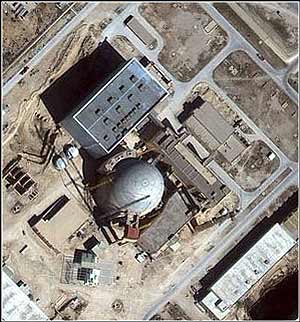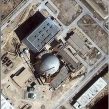
Russian Foreign Policy Takes a Sensible Course on Iran and in the Arctic
Publication: Eurasia Daily Monitor Volume: 7 Issue: 173
By:

Two shifts in Russian foreign policy attracted much international commentary last week: President Dmitry Medvedev’s decree on curbing military cooperation with Iran, and Prime Minister, Vladimir Putin, participating in an Arctic conference in Moscow. Both issues, however, are loaded with controversies that muddle the substance of these priorities. The decision to stop the export of the S-300 surface-to-air missiles to Iran constitutes an implementation of UN Security Council Resolution 1929 on imposing new sanctions against Iran approved on June 9 (Rossiyskaya Gazeta, September 24). Putin’s speech at the international forum organized by the Russian Geographic Society emphasized the benefits of cooperation in the Arctic focusing particularly on ecological issues, and was a natural reflection on his exploits in Northern “eco-tourism” from Franz Josef Land to Tiksi, Yakutia and to Kamchatka (Kommersant, September 24).
There is, nevertheless, something odd about both these headline-making events. Russia did cast a “Yes” vote on the UN resolution proposed by the US –and then apparently for three and a half months pondered what it had really committed itself to. Opting for breaking the contract with Iran, Moscow in the same week confirmed a deal on exporting to Syria the supersonic anti-ship missiles P-800 Yakhont (Nezavisimaya Gazeta, September 21). As for Arctic issues, Putin firmly rejected the “frightening scenarios” for geopolitical struggle over it, which was in his opinion “designed to make the countries of this region quarrel and clash while trying to gain some profit, or fish in troubled waters.” Putin neglected to specify that the Russian National Security Strategy, approved in May 2009 spelled out such a scenario. Putin also remained silent about Russian plans for expanding its exclusive economic zone. After all the bombastic declarations, Moscow has surprisingly not as yet submitted a revised claim to the UN Commission on the Limits of the Continental Shelf (Vremya Novostei, September 22).
It is tempting to interpret high-profile actions by Medvedev and Putin as signs of tensions inside this awkward duumvirate, but there is nothing in the Iranian or Arctic intrigues that would support such an interpretation. Medvedev’s decision on the S-300 missiles does not contradict Putin’s line towards cultivating ties with Iran; in fact, Putin is seriously irritated with President, Mahmoud Ahmadinejad, who frustrated his attempt to deliver a solution on the crucial international problem with the offer to enrich uranium for the Iranian nuclear program in Russia. The long-delayed construction of the Bushehr nuclear power station was finally completed last month with the loading of fuel, not in violation the UN sanctions. The completion of the reactor has given a boost to Iran’s ambitions (www.gazeta.ru, August 19). As for the Arctic, Medvedev’s initiative on a compromise solution to the long-running maritime border dispute with Norway fits perfectly with Putin’s guideline on closer cooperation among the Arctic “five.” The only discernible difference in this positioning is that by claiming credit for the border deal, and particularly the move against Iran, Medvedev exposes himself more to the criticism from “patriotic” demagogues (Ekho Moskvy, September 24).
Medvedev and Putin executed a single political plan in order to advance Russia’s energy interests even when dealing with such seemingly unrelated matters as non-proliferation or climate change. Acknowledging the need to increase pressure on Iran, Moscow at the same time disapproved unilateral sanctions imposed by the US and the EU –but it is far from clear whether it is actually upset with these punitive measures targeting primarily the Iranian petroleum industry. Several high-level Russian delegations to Tehran confirmed Moscow’s readiness to invest in various energy projects and to export fuel via safe Caspian Sea routes, seeking to make sure that this potentially lucrative market is not left entirely to China’s insatiable appetite (RBC Daily, August 25). As for the Arctic, Putin declared the intention to conduct a massive “clean-up” and take good care of the fragile eco-systems. However, Russia’s new goal is to prompt Norway to set up a joint venture for developing the hydrocarbon riches of the former disputed area (Prime-TASS, September 15).
The dominance of energy matters has been a constant feature in Russian foreign policy since the early 2000’s, but currently these matters dictate the preference for expanding cooperation with the West, which is necessary for securing new investments and old markets. Similarly, the corrupt “privatization” of a large part of the petro-revenues determines the perseverance of “resource nationalism.” Medvedev understands the need to show hard-nosed “pragmatism” and insists that NATO has no role to play in the Arctic, while remaining reluctant to accept an invitation to the Alliance’s Lisbon summit. Russian policy on Iran also vacillates between “reset” driven toughness and calculated good-neighborliness (Kommersant, September 24). Adamantly rejecting any application of military means to the problem, which quite obviously has no political solution, Moscow cannot avoid the forethought that it stands to benefit handsomely from the rise in oil prices that would inevitably follow a military strike on Iran’s nuclear facilities.
The near-perfect concord between Medvedev and Putin in delivering a flexible and humble foreign policy stems not only from the obvious assumption that discord would weaken its credibility. It is also sustained by the suspicion that any discrepancy could trigger an elite quarrel, which is certain to be destructive for domestic stability. This passivity of the “masses” and lack of competition between domestic political forces is valued as the main achievement of Putin’s regime, but its continuity is problematic. Public protests might remain subdued but the feuds between corrupt clans are set to intensify as the volume of loot is shrinking. The natural first reaction on the arrival of recession is to abandon inflated ambitions, and Russia’s sensible behavior in the Arctic and towards Iran reflects this sobering adjustment. However, the second reaction to protracted stagnation might witness an attempt to overcome the elite crisis by launching a new “patriotic” mobilization –and Putin is better positioned to undertake such a disastrous remake.




